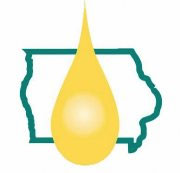In an effort to shut down the rumor mill, the Renewable Fuels Association is setting the record straight on the Renewable Fuel Standard (RFS).
 There have been rumors that EPA might attempt to scale back the RFS by 20% due to the deteriorating condition of the U.S. corn crop, but RFA officials say the statutory process relating to RFS waiver provisions make that unlikely to happen.
There have been rumors that EPA might attempt to scale back the RFS by 20% due to the deteriorating condition of the U.S. corn crop, but RFA officials say the statutory process relating to RFS waiver provisions make that unlikely to happen.
“In order for EPA to waive RFS requirements, the agency must find that the program is causing economic “harm.” The agency can reach such a finding on its own, or it can be asked to examine the question of “harm” via petition from the public. EPA must provide a public comment period and consult with other relevant agencies before making any final decisions regarding a waiver request,” according to RFA. “In short, EPA cannot waive the overall RFS targets on a whim – there is a well-defined process for waivers.”
The organization notes that ethanol stocks currently stand at about a billion gallons of ethanol in the market, at least enough for the rest of the summer. Despite the fact that production dropped to the lowest of the year last week, the industry remains on pace to easily satisfy this year’s RFS target of 13.2 billion gallons. Year-to-date monthly EIA production data shows annualized ethanol production of 13.9 billion gallons.
RFA President and CEO Bob Dinneen will testify before a House subcommittee hearing this morning to underscore the importance of the RFS and ethanol. The House Energy and Commerce Committee Subcommittee on Energy and Power is holding a hearing on “The American Energy Initiative: A Focus on Alternative Fuels and Vehicles, Both the Challenges and the Opportunities” beginning at 10 am Eastern.










 According to federal fuel regulations, the gasoline blendstock needed to blend E15 during the summer is different from the gasoline blendstock for E10. The refiners who control what products go into pipelines that feed the fuel terminal for the Cedar Rapids area have refused to provide E15 blendstock anywhere in Iowa.
According to federal fuel regulations, the gasoline blendstock needed to blend E15 during the summer is different from the gasoline blendstock for E10. The refiners who control what products go into pipelines that feed the fuel terminal for the Cedar Rapids area have refused to provide E15 blendstock anywhere in Iowa.  This edition of “The Ethanol Report” features comments from Bobby Likis of the
This edition of “The Ethanol Report” features comments from Bobby Likis of the 
